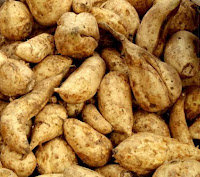MEDICINAL VALUE OF A NEEM TREE
MEDICINAL VALUE OF A
NEEM TREE
The neem tree (Azadirachta indica) which is also
known as Indian lilac, and Dongoyaro in some parts of Africa. Is a tree in the
mahogany family Meliaceae. Neem tree is
a magical evergreen tree (a drought resistant tree), a native of India but
gradually spread to many parts of the world over the years. It has been used locally
as medicine over thousands of years and over the centuries in pharmaceutical,
cosmetics and toiletries.
Almost every
parts of a neem tree is used for medicine, ranging from root, bark, twigs,
seeds and flowers.
Neem is
considered as a medicinal tree in many areas across the world, including some
parts of Middle East, most of sub-Sahara Africa including West Africa, and some
parts of India.
Some of the uses
and health benefits of a neem tree include the following;
Beautiful
and Glowing skin: Regular use of paste of neem leave on your face gives a
better result and addition of cucumber makes the result much better. Always
apply it to your face when going to bed at night. This combination of cucumber
and Neem leave can also be used for skin whitening. Neem is perceived in India as
a beauty aid. Powdered leave are a major components of at least one widely used
facial cream and purified neem oil also used as a nail polish and other
cosmetics.
Toiletries:
Neem oil is used for preparing cosmetics such as Soap, Shampoo, Balms, and Creams
as well as Toothpaste.
Cardiac Problem:
Infusion of leaves in HOT water when taken removes bad sugars and toxins from
blood vessels, improve blood circulation and balances heart pumping rates.
High blood
pressure: It relaxes erratic heart beats and balances blood pressure, research
shows that the intravenous administration of neem leaves alcohol extract
significantly reduces blood pressure.
Eczema:
Dried leaves are burnt on a red hot charcoal and used to cure eczema.
Pesticides
and Insecticides: Pound a few handful of seed, add water mash and filter out
the solution with a clean sieve and spray it on your crops. This solution doesn’t
kill insect but act as a repellant. Neem leaves are dried in India and placed
in cupboards to prevent insects eating the cloths, and also in tins where rice
are stored. While in some tropical countries neem leaves are burnt to keep away
mosquitoes.
Cancers: Breast,
prostate and all form of cancer, neem tree leaves tea detoxify the system and
improve immune response, eliminate free radicals and inhibit inflammatory
reactions. It destroys cancer cells more especially prostate cancer growth and
inhibits its spread.
Typhoid and
Malaria neem leaves tea is an effective cure for typhoid and malaria (fever).
Blood
purification: Neem leave is an excellent mean for enhancing good circulation of
blood.
Wound treatment
and pain killer: extracts of leaves and seeds together gives a good anti-inflammatory
that relives pains , heals cuts, wounds, headache, sprains and ear aches. Neem
oil is used to treat sweet itch and mud fever in horse.
Skin tonner:
Boil about 20 to 25 leaves in a liter of water in a closed vessels over a gentle
flame for about 20 minutes. Then filter and put in a clean bottle and always use
with the aid of a cotton to clean face every night before going to sleep. It
removes dead skin, treat acne and rejuvenates skin.
Antibiotics:
Leaves, barks, and almost all part of a neem tree have antibiotics effect, but
the twigs have highest antibiotics effect which works against dangerous
bacterial.
A
traditional Indian plants medicine (Azadirachta indica) has now led to
several therapeutically useful preparation and compounds due to which the
scientist are exploring information about this medicinal tree plant. After you
have read all the above information it’s now time to make good use of centuries
old knowledge on neem through modern approaches of drugs and vaccines
development.



सुपर
ReplyDelete